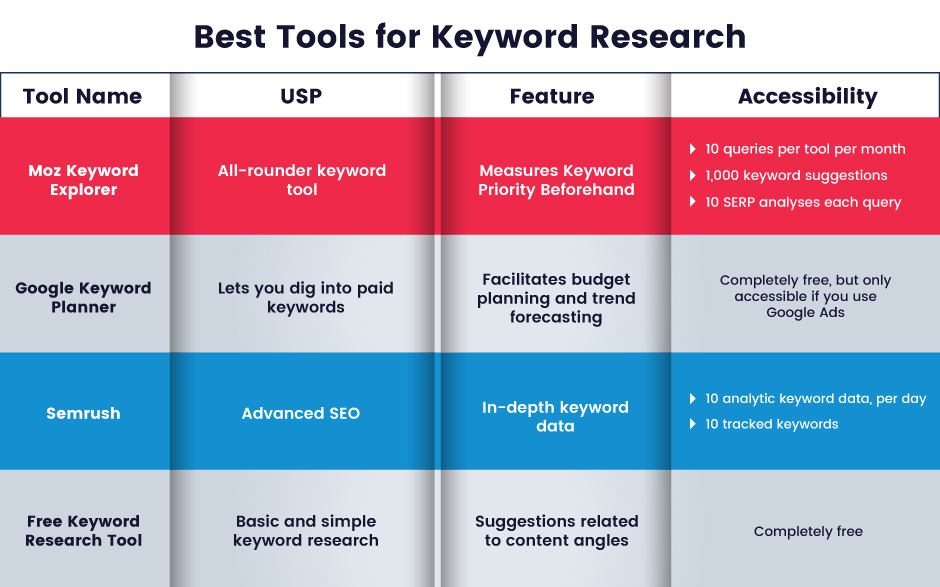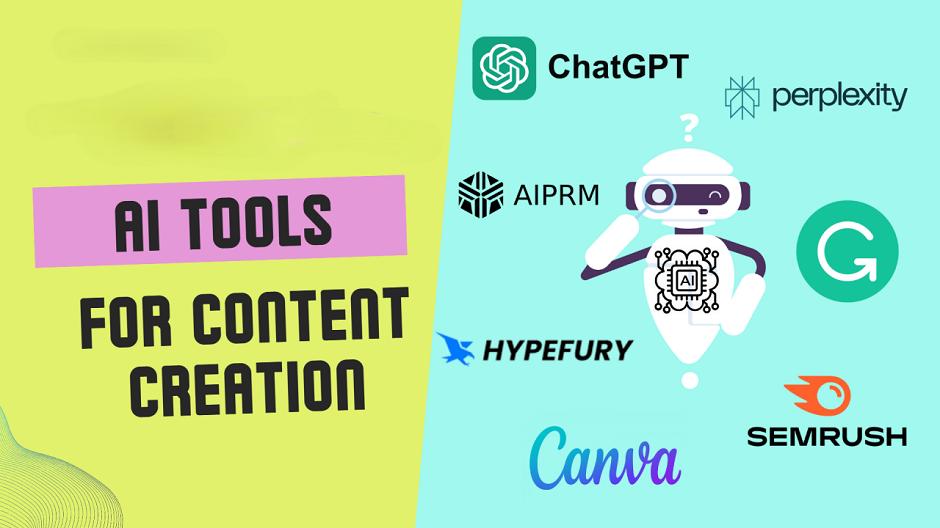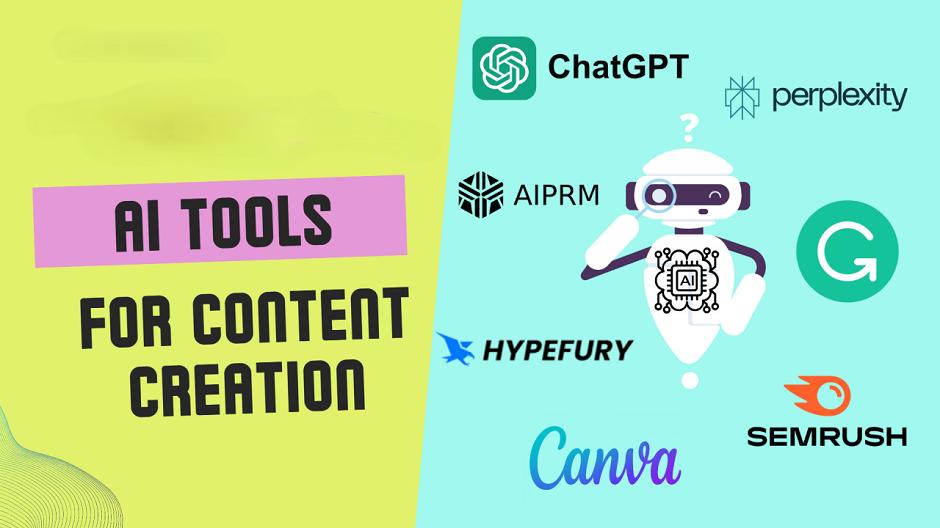
AI Content Optimization: How to Optimize Your Content for AI Search Engines
With AI evolving its capabilities at a very fast pace, it is predicted that by 2025, we will be witnessing an all-new phase of AI. It has already led the corporate culture to get used to it. AI has touched points we had never imagined, from research to creating bangs in Excel sheets. If you think, this is what AI was made for, then buckle up your shoes as with each day passing, AI is becoming too powerful to neglect.
Things have gone far, as AI has now moved forward to challenge the search engine giant, Google, with its solid planning and prototype development to create an AI-driven search engine. Recently, the founder of OpenAI, Sam Altman, announced they are working on “SearchGPT”. It is a search engine that will bring real-time results, enhancing the user experience. Well, this is just the beginning, in the coming time we might see a lot of AI search engines.
To cope with it, marketers need to start understanding strategies like AI content optimization, keyword research, tonality and much more. Let’s take the first step into the world of AI search engines together and understand their concepts.
Understanding AI Search Engines
- The Concept: Search engines powered by artificial intelligence to get results. The whole idea of building this concept is to enhance the user experience with personalization. AI search engines use Natural language processing and ML, to interpret the intention behind a user’s search query. The USP of these search engines is that they can provide concise summaries of information from across the web, instead of just pointing users to web pages.
- The Difference: With the debut of AI search engines, there is a huge confusion between traditional and AI-driven search engines. Traditional search engines are completely reliant on algorithms and SEO efforts put in by marketers. From keywords to backlinks, each effort is counted and then results are shown. But AI search engines are different, they provide results in the form summary. They collect relevant information across the web and blend it as a single and comprehensive answer.
- The Testament: Whether you want to get AI-generated content or extract some real-good information with references, an AI search engine is a perfect testament of ‘convenience without glitches’.There are various AI that have become a comfort for various marketers. Out of the extensive list of AI search engines, platforms like Perplexity.ai, Phind, Microsoft Bing, and Komo have already caught attention.
- Perplexity.ai: Includes chatbot functionalities
- Phind: Answer engine for developers
- You.com: Creates results in a conversational tone
- Komo: AI search engine with privacy capabilities
- ChatGPT: Performs search queries effectively
Keyword Research and Optimization
The strategies we have used in keyword research can be changed drastically right after AI search engines roll out to their full capacity. However, one more truth is that no matter how advanced the search experience might get, the habit of keyword incorporation should not be compromised.
Keywords not only indicate the intention of the content, but they play a major role in creating a place in the crowded content market. With effective research, we can analyse the competitiveness and search volume of the keyword, making space for great space for healthy use of keywords. So, if you seek the stepping stone to optimise content for AI search, keep keywords always in mind.
Importance of Keywords Relevance
To all the marketers who are judging keywords based on search volume, it’s time to gear up!
Today, keywords’ significance is not just limited to high rankings, but they play a main role in building authority and gathering loyal readers. This is because of “Semantic SEO”, which means that the search engines and the developed algorithms now prioritise the intention behind the search query rather than matching the keywords and ranking it on SERPs.
For example, you run a business that sells gadgets, out of which, one is “electric brush” but as you analysed you found out the search volume is greater for the keyword “brush” and you went for it. But in no time you’ll realise that you are not getting ranks, as “brush” is a generic as well as a much broader term to match with precise intention.
Hence, it becomes important to use terms or long-tail keywords like “affordable electric brush for every age” that can be processed, so your target audience can easily reach your site.
“Grab intention, attention will follow you.”

Creating High-Quality Content
Creating quality content is necessary to convert visitors into loyal content consumers. Especially, when AI search engines are on their way to revolutionising the whole concept of SEO and focusing on quality, even more. Below is a tiny guide to provide you with a roadmap for creating quality content.
Understanding AI Content Preferences
From Google’s AI search engine (AI Overviews) to consistent improvement on SearchGPT, it’s the time when the content will be dictated by AI. Hence, as a creator or a marketer, it is important to analyse the content preferences standardised by AI, itself.
Here are a few preferences described, that have been started following religiously by the marketers around:
- Relevance- Content should match the user’s search intent and keywords, closely. Understanding the context behind queries is crucial to building authority and engagement.
- Quality And Depthness- Broad, well-researched articles that cover a topic in depth are favoured. This includes providing valuable insights, statistics, and examples. Simply, after reading your content, readers should not feel the need to read anything more.
- Clarity And Readability- Content should be written with simplicity, completeness and conciseness. Good formatting with headings, bullet points, and short paragraphs enhances readability.
- Uniqueness- The content delivered should be unique and creative. Various tools can effectively detect plagiarism and AI-generated content accurately. Tools like ZeroGPT, Quillbot, and Grammarly can help you detect content replication for free.
- Authority And Trustworthiness- Taking the support of reputable content sources, author’s credentials and strong backlinks can help you to create authority online.

AI evaluates content quality in numerous ways. With AI’s advanced processing capabilities and innovative language analysis, AI can detect quality conveniently and effectively. Below are some of the verified and highly-discussed ways AI follow to determine quality:
- NLP (Natural Language Processing)- AI can utilise NLP to understand and render human language, along with analyzing grammar, syntax, and semantic coherence.
- Sentiment Analysis- AI can analyse the emotional tone of the text, which can be useful for analyzing social media, product reviews, and customer feedback.
- Adversarial Metrics- AI can use a discriminator model to decode the text, whether it is written by human or through AI tools.
- Plagiarism Detection- AI can seamlessly detect plagiarism by comparing your text with the existing data bank.
- Keyword Extraction- While processing the search query, AI can analyse keywords from your content and show it in the results. But only if it is incorporated naturally and is relevant to the place it is used in.
Bonus Read: AI is continuously merging its boundaries with content marketing. To cope with the changes AI will bring, it is important to go beneath the ordinary boundary and explore the behaviour of artificial intelligence. Below are the two tips, that will play a crucial role in buddying your content with AI.
1. Enhancing Content With Multimedia (Images, Videos)-
When a user inputs a search query, the AI not only examines the text but also consider the images, videos, and other media to measure how well they align with the query intent.
Furthermore, AI also considers how often multimedia is clicked or shared, as it indicates its value. Ultimately, the integration of multimedia enriches the overall context and meaning of the content, making it more likely to be ranked higher in search results, as it fulfils diverse user needs and preferences.
2. Naturally Including Keywords in Your Content-
By now, it is clear that AI search engines prioritize user experience over technical strategies. Hence, it is important to create a balance between SEO and user experience. To do so, the first and foremost step is to understand the significance of adding keywords naturally.
To optimise content for AI search engines, using keywords naturally can be proven as a significant step. It eliminates the possibility of keyword stuffing, which can negatively impact user experience and lead to penalties from search engines. By strategically placing keywords in headings, subheadings, and throughout the text, you signal to AI about the main themes of the content.
Structuring On-Page Content for AI
Today, results are being transformed into a summary, web scrolling is being replaced by linked overviews and generic searches are being replaced by intelligent conversations. Get ready to experience the depth of content creation.
No sooner, we will be witnessing quality becoming the ultimate standard of SERP rankings. Hence, by thoughtfully structuring your content through precise headings, straightforward lists, effective metadata, schema markup, and strategic internal linking, you can enhance its clarity and relevance. This will not only increase the On-page SEO of your page but will help it to get ranked.
This not only improves user experience but also guarantees that AI algorithms can easily understand and index your content, leading to better visibility and higher rankings.
1. Optimizing Headings and Subheadings
- Consistency- Enhance readability with the same formatting (Capitalisation, bold, font).
- Conciseness- Ensure the heading justifies the content within.
- Hierarchy- Follow a clear hierarchy, i.e. H1 for the main title, H2 for main sections, H3 for subsections) to help both users and search engines understand content structure.
2. Using Bullet Points and Lists Effectively
- Logical Grouping- Group the related points together to enhance readability.
- Conciseness- Keep the length of pointers short.
- Highlighting Key Aspects- Highlight the key points with bullet points.
3. Ensuring Proper Metadata and Tagging
- Title Tags- Write distinctive, keyword-rich title tags for each page to enhance click-through rates.
- Meta Descriptions- Write meta descriptions that reflect the accurate summary of content and are compelling.
- Alt Text For Images- Incorporate descriptive tags that AI search engines can understand and extract the accurate intent behind it.
4. Schema Markup for Better Understanding
- Relevant Markups- Relevant markups can help AI search engines analyse your content structure.
- Test With Tools- Leverage tools like Google’s rich result test to ensure the accuracy of the schema.
- Status Updated- Keep up-to-date with schema updates to take benefit of new traits and types.
5. Find Internal Linking Opportunities
- Contextual Links- Enhance user navigation and leverage page authority distribution by linking relevant internal links
- Anchor Text Optimization- use anchor text that is descriptive and includes keywords to improve SEO.
- Regular Audits- Execute frequent audits of your content to identify and create new internal linking possibilities.
By pursuing these strategies, you can optimize your on-page content for better visibility and user experience, making it more accessible to AI search engines.
Technical SEO for AI Search Engines
Technical SEO is beyond content, it takes responsibility for a frustration-free user experience. It handles the structure of the website ensuring great AI SERP rankings. Basically, technical SEO handles structure beyond any specific type of search engine, i.e. it is responsible for interaction between site and user.
Hence, as a digital marketer, be consistent with technical SEO. As long as your website exists, it needs to be maintained full-fledged.
1. Improve Site Speed And Performance
Faster site speed can bring various benefits like increased lead generation, enhanced user experience and SERP rankings
Here are a few ways to improve your site speed:
-
Enable Browser Caching- A dedicated plugin for caching can help your site load faster by reducing the number of database queries that are made each time a visitor interacts with your site.
-
Optimise Images- Big file images are one of the biggest obstacles in a webmaster’s journey to enjoy uninterrupted site operation. To enjoy the same, you need to compress the images used in it.
- Reduce HTTP Request- When someone visits your webpage for the first time, your site spends time downloading images, scripts and other components. This makes your site speed slow. Hence, to get back on track, you need to minimize the number of components from your site.
2. Mobile-friendliness
As a webmaster, you need to ensure that users get the best experience regardless of the device they are using. If we look at the statistics, 54% of the site traffic is generated via mobile, which is why efforts should be made to create a website compatible with the website.
These are some ways to improve your site’s mobile compatibility:
-
Avoid Pop-Ups- Pop-ups can be useful, only for desktop users. For mobile users, it might be frustrating. Avoiding pop-ups on mobile sites reduces bounce rates, which positively impacts SEO. Additionally, it ensures better mobile usability and faster load times, both vital for search engine ranking.
- Responsive Layout- Responsive layouts are required for technical SEO as they ensure a better user experience and reduce bounce rates. They also improve site speed and indexing, making sites more favourable in search rankings.
- Declutter Web Design- Make sure your site has a user-friendly interface. Too many CTA’s or scroll-down menus can frustrate the users while scrolling. Eventually, you may end up losing a lot of visitors. Hence, make sure your website contains a design that can make navigation easy.
3. Secure And Accessible Website (https)
A secure and unrestricted website (HTTPS) is important for technical SEO. It improves users’ trust and security, provides higher engagement and eliminates situations that can increase the bounce rate. Besides, HTTPS is a vital ranking factor for search engines, meaning sites with secure connections are more likely to rank higher in search results.
Here are several options to improve your site’s accessibility and security:
- Implement HTTPS- Get your website an SSL/TLS certificate to protect your data and ensure closed connections. Divert all HTTP traffic to HTTPS to preserve higher security.
- Enhance Accessibility- Pursue WCAG guidelines (Web Content Accessibility Guidelines) strictly for interactivity. Use semantic HTML and test with accessibility tools to confirm all users can operate your site effectively.
- Adopt Security Best Practices- Ensure all the users who invest their trust in you leverage the best security settings. This includes keeping the software updated, using strong authentication passcodes and conducting frequent security audits.
Leveraging Free AI Tools for Content Optimization

1. ChatGPT: Optimise On-page Smartly
ChatGPT is an AI tool that leverages advanced machine language to craft a human-like interaction with the user. It is one of the best tools to leverage to optimise content for AI search. With its user-friendly interface, it is considered one of the best AI tools for those who are into providing content wrinting services. You can use it in the following ways:
- Generate keyword-research meta descriptions and title tags
- Generate content outlines
- Analysing the lengthy documents
- Check readability
2. Semrush: Premium Optimisation For Free
Semrush is a complete and verified digital marketing toolkit that has gained popularity for its accuracy. The tool has mindfully integrated AI and SEO to effectively analyse the health of your website, the strength of keywords and much more. You can apply it in these ways:
-
Run effective keyword research/overview
-
Analyse competitors for free
-
Monitor your local rankings
-
Run a free website audit
3. MarketMuse: Captivating Strategies At Fingertips
A tool that will remain undiscussed always. MarketMuse makes your digital marketing journey as easy as pie. With its applaudable design, it can effectively analyse your website’s authority, and give you the best guidance in content planning and creation. You can utilize it in the following manners:
-
Effective content management
-
Designing promising content brief
-
Internal linking suggestions
-
Provides you with a personalized difficulty score
4. Yext: Best for Voice Search Optimization
Yext is often considered one of the best tools for those agencies that are available in more than one location. It has been a pioneer in local searches, which makes it ideal to optimise content for voice search. This is because according to various statistics, a huge fraction of voice searches are “near me” queries. It can be used as follows:
- Standalone SEO-driven landing pages
- Reputation management
- Automate conversations with AI-powered solutions
- Driving quality engagement
Conclusion
From generating an initial idea of content to stepping into the world of search engines, artificial intelligence has covered a scope worth exploring. Today, the wisest marketers who adopted AI, before it was even a trend, are getting the best results. This indicated the importance of blending advanced solutions of AI into the intricate process of content creation. Today, AI Content Optimization is something that needs to be leveraged to get the best result without investing much of the time.
Let’s see how high the scope of AI reaches. But one sure thing is, that marketers need to buckle up as the merge of AI with digital marketing is not going to pause any sooner.
Frequently Asked Questions
1. How to optimize AI content?
Use relevant keywords, ensure high quality and serve unique material. Have well-structured content with clear headings and bullet points. Ensure quality of metadata, readability and visual flow. Then the correct element of internal linking builds your navigation and distributes authority across your site.
2. Can AI write SEO content?
Yes, AI can generate SEO content. Tools like ChatGPT can assist in creating optimized text, generating keywords, and providing content outlines. However, it’s essential to ensure that the content aligns with user intent and is high-quality.
3. Can Google accept AI content?
Yes, Google can accept AI-generated content as long as it adheres to quality standards and provides value to users. Content must be original, and relevant, without violating any guidelines set by Google.
4. Can I monetize AI content on a website?
Yes, you can monetize AI-generated content on your website. It is important to provide original content, that complies with copyright laws and adds value to your audience. However, you should ensure the content is of high quality to maintain user engagement.
5. Who owns AI-generated content?
Ownership of AI-generated content can vary based on the platform and terms of service. Typically, the creator or user who generates the content retains ownership, but it’s essential to review the specific guidelines of the AI tool used. Additionally, copyright laws regarding AI-generated work may still be evolving.
More Realted Blogs:








